Benedict Nightingale, reviewing the new London theater season for the New York Times in 1999, put his finger on the big trouble with Rose, Martin Sherman’s one-woman play about an 80-year old Holocaust survivor sitting on a park bench in Miami and remembering the high and low points of her extraordinary life.
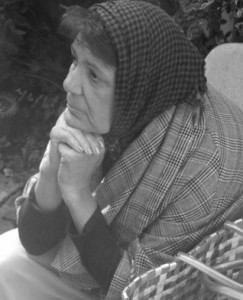 “Rose’s life sometimes seems too exemplary to be true,” Nightingale writes. “Add some convenient coincidences to her tale — like meeting a bitter old shopkeeper in the Arizona desert and realizing he is the spouse she thought she had lost to Dachau — and Rose could easily be a case study rather than a character.”
“Rose’s life sometimes seems too exemplary to be true,” Nightingale writes. “Add some convenient coincidences to her tale — like meeting a bitter old shopkeeper in the Arizona desert and realizing he is the spouse she thought she had lost to Dachau — and Rose could easily be a case study rather than a character.”
But Nightingale also saw beyond Sherman’s desire to embrace the entirety of the post-Holocaust Jewish dilemma in a single overstuffed play, instead championing the drama’s extraordinary heart and the quietly stunning performance of its star, Olympia Dukakis — “the permafrost beneath the surface, the Siberia in her soul.”
He praised Rose for its “always lively, often distressing, sometimes hauntingly strange observation,” and concluded: “If you think that sedentary bravura is a contradiction in terms, this should change your mind.”
England liked Rose. It was nominated for the Olivier Award for best new play, and moved in 2000 to New York, again with Dukakis, where its reception was chillier. Bruce Weber, also writing in the New York Times, reacted like this: “(H)er story resonates on the tired frequency of a lecture about the wages of forgetting the past. If you are not of a certain age, you may react to her as a child to a relative who has overtaken one too many family gatherings: Yes, Grandma. Now can we go out and play?”
Then, echoing a theme sounded by several reviewers, he lamented the script’s streaks of jokiness amid the general despair: “Either Mr. Sherman is talking through her, or else in the year it took Rose to become fluent in English, she assimilated a lifetime of Borscht Belt humor.”
Well, maybe. But then, Rose is 80 years old when she sits shiva on that park bench, and she’s lived in America for most of her adult life. And Borscht Belt humor doesn’t come just from the Catskills. The Catskills are only a pipeline to older places and older times, where that peculiarly Jewish humor of survivors’ exaggeration was born and nourished before it immigrated to summer camps on American lakes. So Rose couldn’t be a little funny? So she shouldn’t be a little funny? Jews have been laughing about the unlaughable for a long, long time. It’s one way you get through.
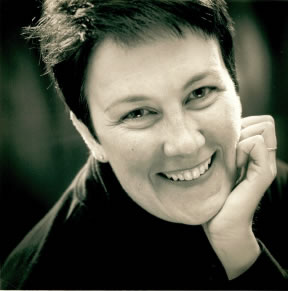 Ms. Alsop is
Ms. Alsop is  In
In 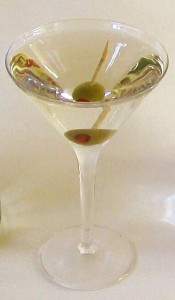 In 1963 I had the honor of hosting Auden, who was giving a reading at a community college I attended at the time. There was a dinner and reception before the reading, during which he drank, by my own nervous count, a dozen martinis! And seemed drunk. We didn’t know what to do, and when approached he assured us all was fine, no, he didn’t want any coffee …. so off we went to the reading, nervous as hell. He still seemed drunk to me when he went to the podium. Then somehow he didn’t. He gave a brilliant, flawless reading. Then he stepped away, seemed drunk again, and wanted to know when he could have a drink.
In 1963 I had the honor of hosting Auden, who was giving a reading at a community college I attended at the time. There was a dinner and reception before the reading, during which he drank, by my own nervous count, a dozen martinis! And seemed drunk. We didn’t know what to do, and when approached he assured us all was fine, no, he didn’t want any coffee …. so off we went to the reading, nervous as hell. He still seemed drunk to me when he went to the podium. Then somehow he didn’t. He gave a brilliant, flawless reading. Then he stepped away, seemed drunk again, and wanted to know when he could have a drink. It’s the latest in Eric Hull‘s
It’s the latest in Eric Hull‘s  Waterbrook is basically a room with an entrance area and a door leading to what serves as a green room for the performers. Somewhere around the corner, down a broad-plank floor, is a restroom. On Saturday the performance space had a few rows of folding chairs for the spectators, a lineup of music stands up front for the six performers, and three chairs to the side for the performers who occasionally sat a poem out. In other words: all the tools you really need to create some first-rate performing art.
Waterbrook is basically a room with an entrance area and a door leading to what serves as a green room for the performers. Somewhere around the corner, down a broad-plank floor, is a restroom. On Saturday the performance space had a few rows of folding chairs for the spectators, a lineup of music stands up front for the six performers, and three chairs to the side for the performers who occasionally sat a poem out. In other words: all the tools you really need to create some first-rate performing art. So it is with heightened interest that Mr. Scatter notes the opening of Keep Portland Beard, an exhibition of hairy art that opens Monday at
So it is with heightened interest that Mr. Scatter notes the opening of Keep Portland Beard, an exhibition of hairy art that opens Monday at 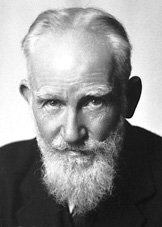 He recalls the story, perhaps apocryphal, about
He recalls the story, perhaps apocryphal, about 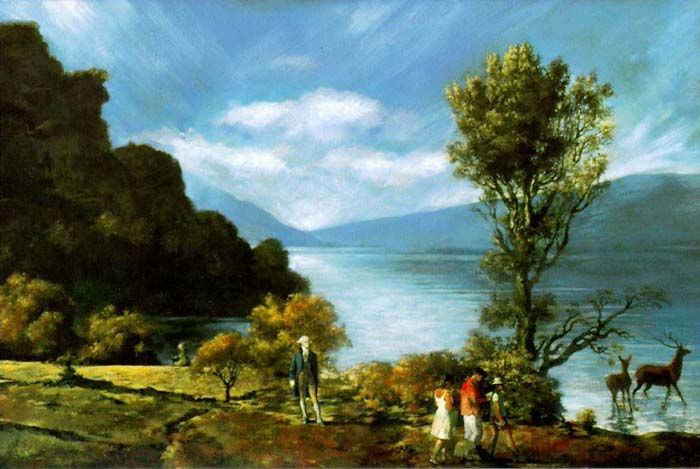
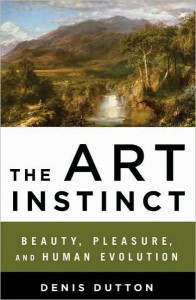 The Art Instinct talks a lot about the evolutionary bases of the urge to make art: the biological hard-wiring, if you will. Dutton likes to take his readers back to the Pleistocene era, when the combination of natural selection and the more “designed” selection of socialization, or “human self-domestication,” was creating the ways we still think and feel. To oversimplify grossly, he takes us to that place where short-term survival (the ability to hunt; a prudent fear of snakes) meets long-term survival (the choosing of sexual mates on the basis of desirable personal traits including “intelligence, industriousness, courage, imagination, eloquence”). Somewhere in there, peacock plumage enters into the equation.
The Art Instinct talks a lot about the evolutionary bases of the urge to make art: the biological hard-wiring, if you will. Dutton likes to take his readers back to the Pleistocene era, when the combination of natural selection and the more “designed” selection of socialization, or “human self-domestication,” was creating the ways we still think and feel. To oversimplify grossly, he takes us to that place where short-term survival (the ability to hunt; a prudent fear of snakes) meets long-term survival (the choosing of sexual mates on the basis of desirable personal traits including “intelligence, industriousness, courage, imagination, eloquence”). Somewhere in there, peacock plumage enters into the equation. But as Libby points out, the museum part of the proposal gets interesting when you consider two things:
But as Libby points out, the museum part of the proposal gets interesting when you consider two things: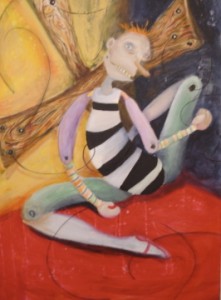 “Damn everything but the circus!” Allan advises, quoting the great, undercapitalized e.e. cummings, who wrote in full:
“Damn everything but the circus!” Allan advises, quoting the great, undercapitalized e.e. cummings, who wrote in full:
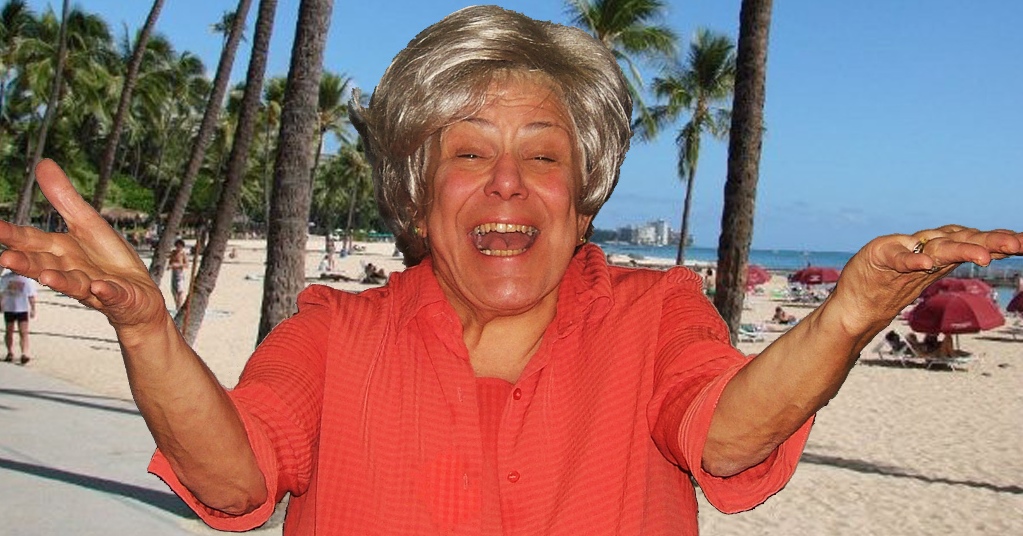
 And Westerwelle, the irrepressible onetime Storefront stalwart who scored a big hit with her Sophie Tucker show Soph: A Visit With the Last of the Red Hot Mamas, takes on a very different personality in the Northwest premiere of
And Westerwelle, the irrepressible onetime Storefront stalwart who scored a big hit with her Sophie Tucker show Soph: A Visit With the Last of the Red Hot Mamas, takes on a very different personality in the Northwest premiere of